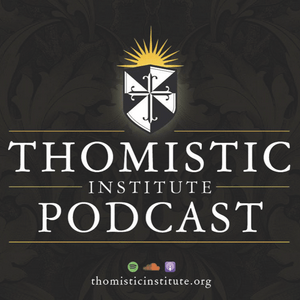John Henry Newman's Conception of the Development of Doctrine | Prof. Chad Pecknold
This lecture was given on April 25th, 2024, at Hillsdale College.For more information on upcoming events, visit us at thomisticinstitute.org/upcoming-events.About the Speaker:Dr. Chad C. Pecknold earned his PhD in Systematic Theology at the University of Cambridge in England. He is a Catholic theologian and for the last 16 years he has been a professor of theology at The Catholic University of America in Washington DC, teaching in the areas of fundamental theology, Christian anthropology and political theology. Since 2022, he has been named by The Catholic Herald as one of the most influential Catholic thought leaders and authors in the United States. An internationally recognized scholar of Augustine’s theological and political thought, Pecknold has authored or edited five books — including Christianity and Politics: A Brief Guide to the History and The T&T Clark Companion to Augustine and Modern Theology —and authored dozens of peer-reviewed journal articles. He edits the Sacra Doctrina series for CUA Press with Fr. Thomas Joseph White O.P. He has served the public by educating thousands of students at the Institute of Catholic Culture, and also through his many columns at First Things, National Review, Wall Street Journal, New York Post, and The Catholic Herald. He has been an invited guest on NPR's "All Things Considered," Fox News, ABC News, and has been a frequent guest on EWTN News Nightly, World Over Live with Raymond Arroyo, and various other EWTN programs, such as the celebrated series on Heresies. Pecknold has also led institutions, serving as Chair of the American Academy of Catholic Theology from 2015-2020, expanding and professionalizing a guild of theologians faithful to the Magisterium. He also serves in non-profit board leadership as Board Director for Americans United for Life, Board Member for Pro-Life Partners, Board Member for the Classical Learning Test, Fellow of the Institute for Human Ecology, and as Resident Theologian at the Institute for Faith and Public Culture at the Basilica of Saint Mary — the oldest Catholic Church in the Commonwealth of Virginia. While currently finishing a short book on the Catholic understanding of Augustine’s Confessions, Pecknold continues to work on a long term project on Augustine’s City of God and the Christian order of things.He and his wife Dr Sara Pecknold (who teaches Music History at Christendom College) have five children, including adorably identical twin toddler girls whose names they frequently confuse!

